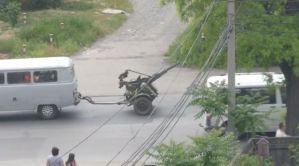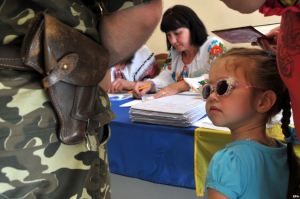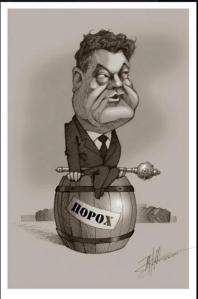 Some statements that go with the key-word “war” cynically say that “war is peace because it makes some people rich and safe…” Others have it that “…War is brutal. The alternative is worse.” The Russian proverb claims that for some people “war is war, for others – “dear mother.”
Some statements that go with the key-word “war” cynically say that “war is peace because it makes some people rich and safe…” Others have it that “…War is brutal. The alternative is worse.” The Russian proverb claims that for some people “war is war, for others – “dear mother.”
Yesterday the funeral of 17 soldiers from the west of Ukraine was broadcast on TV. They had died in Donbas. The wives and mothers dressed in black were crying. The children – most of them of pre-school age – were not crying. The women were hysterically asking a military commander of their killed husbands and sons how it could have happened that so many lives had been lost in what seemed to be not a major battle. I thought about the anti-terrorist action (which is the common official term for the war in Donbas) and about how long it has been going on. In my understanding an “anti-terrorist” action should last just a few hours, not months. However, every day our soldiers risk their lives and die in the East of Ukraine, There are no tangible results. There appear more and more of the bandits, who have got more and more of arms and ammunition. The bandits and the weapons can be continuously and successfully supplied from Russia only through illegally existing corridors in the border.
Several days ago a pro-Ukrainian activist Mr.Tymchuk (a former military) reported in social networks about some 40 trucks with armed people who were ready to move into Ukraine from Russia. The trucks moved in yesterday morning. The Ukrainian border guards explain that they made an attempt to “stop” the infiltrators but the attempt “failed” and hundreds of the terrorists headed for Donetsk to help the anti-Ukrainian forces. Today the government officials began talking about strengthening the border (after almost three months of the undeclared war with Russia!).
Soon after the collapse of the Soviet Union many Ukrainians started travelling to neighboring East European countries selling there goods they took from Ukraine. That way they got foreign currency which they brought back to Ukraine, thus providing for their families. Some goods were prohibited for taking out of the country – at least in the quantities the traders ‘exported’– and the people found illegal means of carrying the goods through check-points. As a rule, that was done through bribing custom officers and border guards. The state border became transparent, and for many officials responsible for keeping the border “locked” their position turned into a lucrative business. I know about it because my acquaintance told me in those days in detail how he was smuggling goods into Poland. The practice seems to keep until now. Only this time the corridors are bribed through not “out” but “into” Ukraine, and the neighboring country is not Poland but Russia, And the goods are less innocent than electric irons and cigarettes were.
The newly elected President of Ukraine said that his priority is fighting the corruption in the country. I think he put his finger on the problem.

